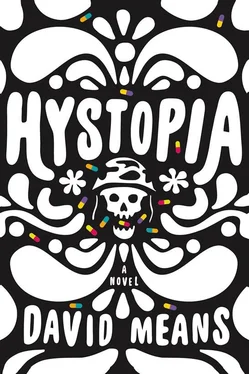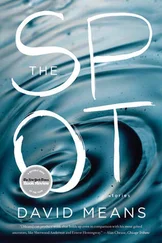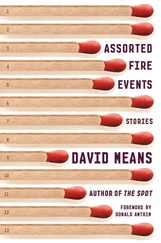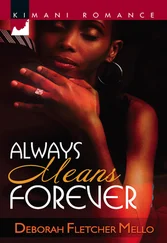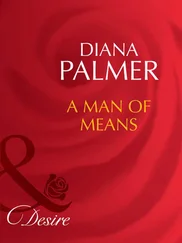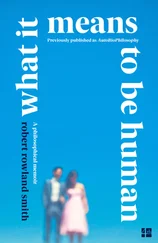Dear Grandpa,
I’m writing this first off, ahead of the fact, to say I’m sorry for whatever pain I’ve caused you. Please forgive me and know that I went out believing most, if not all, of what you taught me about God and about my place in the world and the importance, as you said again and again, of looking at the big, big picture, the one that goes forward in time and backwards and shows, or as you always said, the vastness of eternity in relation, as you said, to our small speck of lives. There are some things I’ve got to get down in this letter to let you know that I do remember. First off, I remember your elegance and the way you dressed — won’t force it in here, but I’ll describe a few things: the way you wore your hat, with your name and address and a note in the band that said, Reward if found. Return to Harold B. Allen. (I’ll spare you what you know.) The suits you bought in Chicago, and the time you took me and let me watch while the tailor chalked and measured and lifted the bolts of fabric out for me to finger, treating me, the tailor, like a man instead of a kid; also the cufflinks you wore along with the sock garters and the shoes. Anyway, your elegance and the house and the time you let me stay there, those days, when things at my house were too chaotic. I’ll spare you the narrative here. This note isn’t to explain why I’d end my life early. I realize that my desperation, my despair, will be linked directly to my tour of duty in Nam, of course, and also Meg’s death and the pain of all of that and the way Mom drinks and so on and so forth, but the truth is I’m simply not equipped for manhood as it is defined in this — I’ll spare you the rest [indecipherable scribble] … I should type this up because the writer’s cramp is killing me, but it seems wrong to type out a note like this on the same machine on which I wrote fiction. I’m slightly obsessive about your hats, to return to that subject. It seems to me that the covering of the head with an elegant object somehow is emblematic of your time and place in the world, and the fact that I’ve grown my hair long, too long to fit under the kind of hat you wear — although in theory it might work — should stand out as a major indication of the difference between your generation and mine, although I do, as I stand here, with a can of gas in my hand (or a gun, or whatever), have to admit that I side with your comment, and agree wholeheartedly, that the concept of generations is a creation of, as you say, the culture gone haywire, and that between your world and mine there is really only a slight, tweaky difference. I go out now because I can’t find a way [indiscernible scribbles] … foothold might be the right word. My body feels unable to relate to the gravitational pull. I thought of this when Neil Armstrong stepped on the moon and I became obsessed with that footprint more than anything, the pattern on the sole, the boot prints, and then I began to wonder if maybe the world would be better if he had stepped onto the lunar surface in a pair of Florsheims (can’t think of a better brand), or better yet one of your handmade shoes, the ones with nails holding the sole. If he’d left a better print perhaps the whole Year of Hate thing, the riots and so forth … I won’t go there. Suffice it to say that a young man who can only come up with a lame little riff on the nature of moon footprints deserves, in some way, to stop existing. Or maybe I should say that a man who has to resort to a riff on footprints and then resorts to resorting to mention of that resorting as a lame excuse and then talks about his desire to end it all deserves to end it all? Anyway, I know you did your best with the draft board and pulled whatever strings you could and were in the uncomfortable position because of your former service.
Dear Buddy,
This is it, man. The real deal. Please disregard other notes and take this one seriously. I’ve been typing like a madman and failed to get the following, not verbatim, but in essence. Here’s a last list of things:
The time we went fishing up at the Two Hearted, which we agreed was really a shit stream, and you caught the hook in my fist when I was watching you cast from the footbridge, looking down and studying the riffles, trying to see where the fish might be lurking from a better vantage. You were wading with your back to me and made a fantastic cast, just beautiful, and then another even better cast, and I was watching the line and the hook — I think it was a muddler — stuck in my wrist and you thought it was a snag and before I could yell you began yanking; not that actual moment but the way we used it later, driving up to Duluth, smoking, talking, as the butt of a joke, twisting it and turning it, taking your point of view and then my point of view. That moment, in the car, rehashing the snag, is where the glory of my life stands. I mean it, man. That was the peak, and the fact that I lived through that moment — I should say moments, in the car — while back home all hell was probably breaking loose, with Meg going into the hospital, is enough for me. In other words, I’m sure now that I’ve had my moment of grace and glory. There’s that moment and the other moment. One night when I was about twelve and Meg was about fourteen we went out into the snow and hiked around, just walking, and the streets were buried and the snow was pouring down and we held hands and she told me that she didn’t care if Johnny Burns called her names, and I asked her what he called her, and she told me and it was the first time I heard the word. I listened and she shrugged it off and that was it, man, the moment I relish because I didn’t know the word and yet heard the word from her own lips and it didn’t pain me yet the way it would when, for example, Burns said it when he beat the shit out of me. The fact that I got all the pain in the thing I’m typing but couldn’t get that tiny, little sliver of grace irks me, but only insofar as any writer feels irked, and they all must, over the limitations of story. As I think we talked about a few days ago, it’s impossible, for the most part, at least for this writer, to get in there and find a way to show how those tiny, little fucking moments of ignorance provide pure grace. Time, I think I said, is the only thing [indecipherable scribble].
Love, your buddy
Dear Buddy,
Scratch that last note, if you got it. I’m sure you got it and I’m sure we’ll have a good heart-to-heart about it if this one doesn’t do the trick. I’m off to the blue yonder. So long. But before I go let me say. Things I’d Enfold If Tripizoid Really Existed:
Basic image of my sister in brush before her body was found, as I imagine it. Alone with the hiss of wind through the pines. The sound of waves breaking down on the shore. Can’t stop seeing that image and would like very much to find a way to enfold it.
Entire war from start to finish with the exception of a couple of R&R leaves, one in Saigon, another in Hong Kong.
[Editor’s Note: The following handwritten fragment was found taped to the back of the manuscript.]
Up in the weedy ditch, not far fromb the lake, on a singular fall afternoon — the few trees about a half mile away flaming bright, astonishingly colorful, and then beyond them the muted slate clouds against a tinge of autumnal blue. The cop in the patrol car just making his usual run down on Route 2, heading west, trying to catch one more speeder, to write the last ticket of the day, not so much trying to reach his quota as wanting to find some way to close it down. He was thinking of his daughter, Anna, and her play at school, and he caught sight of the body in the weeds, a bit of white, could’ve easily been some garbage. But his cop gut was at work. The third wayward girl he’d found that year. They always look windblown, silent, with speckles of mud and blood on their cheeks, and almost always the legs akimbo with a sad kind of entwinement that speaks of being parted and then moving back together with a kind of resistance, an elastic snapback. A naked torso. He had his own way of looking at a body; it was a resistance to the truth that even an officer of the law, seasoned in those parts, having seen several bodies of young women in woods, covered half buried in pine needles, or mourned with leaves. Most of the killers made only a halfhearted attempt at full burial. They were pressed for time, or simply didn’t care. Most of the killers up there worked in homicidal haste, not giving much of a shit if they left evidence or not, always seeming to assume — it seemed to him — that the onus of the crime would somehow be cast back into those twilight, silent, betrayed eyes that stared up out of the skull, sometimes bones, the flesh almost eaten away; the crime — drugs, usually, and then abduction and rape and eventually, using them up, murder — no matter what, at least in the mind of the killers — he thought — was a natural outcome of a sequence of events that began far, far back, starting with a casual pickup, or a seductive lure, or the usage of pills in various forms, and then followed a jagged logic of fear. He theorized a lot about this kind of stuff, as did all of his colleagues. Anyone who came upon the end result in the form of a body, at least any law officer, had to go back through the chain of events, in theory, and attempt to guess at some kind of motive — in a mind-flash — and in doing so felt stained and sullied and implicated somehow in the crime itself, as if by finding the body you were playing a key role in the death itself. Any cop will admit — in some secret part of themselves — that they’re just one step away from the criminal; that the good-cop part is closely associated with the fact that with ease any one of them could’ve gone the other way, into crime, as an avocation, and in making that deep admission also saying — again silently — that crime itself is a vocation, and around any good criminal, even a psychopath, stood a calm that seemed to hold the realities of life in acute focus. Psychopaths, the ones who seem to come about it naturally, worked with a fluidity, a deeper instinctual, even, some cops (this one included) might say, artistic flair, and when he saw the body, as he walked through the weeds, smelling the sweet taint of lake breeze, he knew right away that this one had been the work of someone in a certain zone. How could he tell that? What triggered this sense of all-knowing understanding in a man who had a young daughter; in a man who had just two days ago attended her first performance in a school play? What part of him understood the killer, or at least told himself — perhaps later, in retrospect — that he had had an understanding right away, intuitively, putting two and two together, knowing that this was some guy who had been in Nam, or at least been through some primal trauma — in the parlance of the times — and so could connect somehow with the man who had killed? (Nonsense, he’d tell himself years later, when he’d been through so much more and understood, from the keen view of wisdom, that what he had been sensing at that time was just a rookie’s vision. A rookie cop — or a young cop — made up for his deficiencies, and his fears, by creating an inner narrative that was, above all, coherent: he — or she — saw a causal sense of one thing leading to another; whereas the older, wiser cop, or the retired officer, understood that the terminal result — a dead body — was often of dispirited, random, windblown, senseless events.)
Читать дальше
